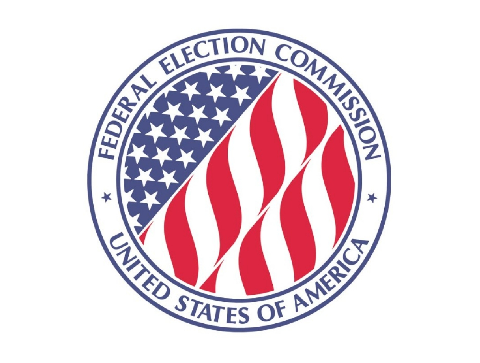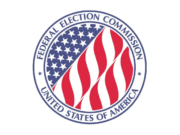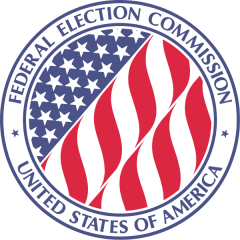On January 28, 2025, the Institute for Free Speech wrote comments to the Federal Election Commission explaining that the mere transfer of funds (regardless of amount, percentage, or timing) from a federal candidate’s or officeholder’s campaign committee or leadership PAC to a “soft-money” entity does not trigger the so-called “soft-money ban” under the Bipartisan Campaign Reform Act.
Read a PDF of the comments here.
January 28, 2025
Federal Election Commission
1050 First Street, N.E.
Washington, DC 20463
Re: AOR 2025-01 (Mikie Sherrill)
Dear Commissioners:
The Institute for Free Speech (“IFS”) submits these comments on the above-referenced advisory opinion request (the “Request”). The Commission should conclude that the mere transfer of funds (regardless of amount, percentage, or timing) from a federal candidate’s or officeholder’s campaign committee or leadership PAC to a “soft-money” entity does not trigger the so-called “soft-money ban” under the Bipartisan Campaign Reform Act (“BCRA”). Such a position not only would be consistent with the Commission’s most recent enforcement precedent addressing this issue, but it would also properly implement BCRA’s anti-corruption rationale for the ban as upheld by the U.S. Supreme Court in McConnell v. FEC.[1]
- The “Soft-Money Ban”
The BCRA provision commonly known as the “soft-money ban” generally prohibits any “entity directly or indirectly established, financed, maintained or controlled by or acting on behalf of” federal candidates and officeholders from “solicit[ing], receiv[ing], direct[ing], transfer[ing], or spend[ing] funds in connection with” any election unless such funds are subject to the federal contribution limits and source prohibitions.[2]
While the statute uses the disjunctive “or” in setting forth the “EFMC” standard, the Commission’s implementing rule adopted immediately after BCRA’s enactment never purported that the mere “financing” of an entity by a federal candidate or officeholder will trigger BCRA’s soft-money ban. Rather, the rule sets forth a non-exhaustive list of ten factors which “must be examined in the context of the overall relationship between [such an individual] and the entity to determine whether the presence of any factor or factors is evidence that the [individual] directly or indirectly established, finances, maintains, or controls the entity.”[3]
The Commission’s rule was consistent with how BCRA’s statutory language was understood at the time. BCRA’s soft-money ban was not understood to encompass four separate criteria, any one of which, if met, would invoke the ban. BCRA’s language mirrored the statute’s preexisting disjunctive EFMC language addressing affiliated political committees being subject to a single contribution limit.[4] The Commission had always interpreted the preexisting EFMC language not as creating four separate, distinct tests, but as one flexible test evaluated on the basis of a multitude of factors.[5] Applying that multi-factor test to determine if committees were “established or financed or maintained or controlled” by the same person or group of persons, the Commission had never considered the mere fact of some financial contribution sufficient to establish affiliation. When Congress passed BCRA’s soft-money ban using the same statutory EFMC standard, Congress presumably was aware of the Commission’s longstanding interpretation and adopted the Commission’s approach.[6]
Therefore, in implementing BCRA’s soft-money provisions, it is not surprising that the Commission did not propose an EFMC standard that was substantially different from the EFMC standard for affiliation, and which would have been necessary—or at least strongly favored—if each factor were understood as a separate basis for triggering the soft-money ban. Instead, the Commission adopted the same approach it had used for affiliation: the phrase “establish, finance, maintain, or control” was a single, flexible test.[7]
When the proposed rules, adopting the single-test approach, were submitted for notice and comment, several commenters quibbled with the Commission’s draft rule, but no commenter suggested that the Commission’s basic approach was incorrect or that “finance” was a term separate from “establish,” “maintain,” or “control,” or that any monetary support could, alone, trigger the provisions of BCRA.[8]
Despite the Commission’s rule, the Commission’s precedents have established a muddled standard under which BCRA’s soft-money ban can be triggered by a federal candidate or officeholder merely “financing” a soft-money entity by a transfer of “hard-money”[9] funds.[10]
- MUR 8090 (Save America)
The Request omits any discussion of, or citation to, MUR 8090 (Save America). To our knowledge, MUR 8090 is the most recent closed matter in which the Commission addressed the soft-money ban, and that precedent must factor into the analysis. There, the Commission decided by a unanimous 6-0 vote that President Trump did not violate BCRA’s soft-money ban when his leadership PAC, Save America, transferred $60 million to an independent expenditure-only political committee (“super PAC”).[11]
As the Commission explained unanimously:
[T]he relevant concern under the Act is whether the funds underlying Save America’s $60 million contribution were previously raised subject to the Act’s limitations, prohibitions, and reporting requirements at the time they were received by the candidate. In McConnell v. FEC, . . . the Court construed the provision narrowly to apply only to funds not raised in compliance with the Act’s “source, amount, and disclosure limitations”. . .
In the present matter, the funds Save America contributed to MAGA, Inc. were raised by a leadership PAC and thus subject to the Act’s “source, amount, and disclosure limitations.” No allegation has been made that Save America has not complied with these requirements. Thus, the funds that Save America contributed to MAGA, Inc. were “hard money.”[12]
In short, the Commission correctly took the position in MUR 8090 that a federal candidate or officeholder who merely transfers hard money from his or her campaign committee or leadership PAC to a soft-money entity engaged in activities “in connection with” elections does not trigger BCRA’s soft-money ban.
The complaint in MUR 8090 specifically alleged that President Trump “violated FECA by directing or transferring $20 million[13] from Save America, a leadership PAC that he ‘directly or indirectly established, financed, maintained or controlled,’ to MAGA, Inc., an [independent expenditure-only committee],” and that “Trump and Save America violated 52 U.S.C. § 30125(e)(1)(A) when Trump directed or transferred $20 million, far in excess of FECA’s aggregate contribution limit of $5,000 per year, from Save America to MAGA, Inc.”[14] The complaint did not specifically allege that the transfer also violated the soft-money ban vis-à-vis the “financing” prong, and therefore the Commission’s analysis also did not specifically address this angle.
However, both the complaint and the Commission’s analysis focused squarely and exclusively on the soft-money ban—52 U.S.C. § 30125(e)(1). It would be untenable for the Commission to hold in MUR 8090 that the transfers did not violate 52 U.S.C. § 30125(e)(1) with respect to the statute’s contribution limits while holding open the possibility that the transfers could have violated the same prohibition as “financing.” This is especially so considering that the $60 million at issue constituted almost 82% of the $73.268 million in total receipts that the recipient super PAC reported for the relevant election cycle.[15]
Both the complaint’s and the Commission’s silence on the “financing” angle in MUR 8090 illustrate how this is simply a non-issue and cannot be treated as a discrete and independent basis for applying BCRA’s soft-money ban.[16]
- Legislative History and McConnell
The legislative history and contemporaneous judicial understanding of BCRA’s soft-money ban also suggest that the ban was never intended to sweep as broadly as the Commission has applied it with respect to the mere “financing” of a soft-money entity.
BCRA’s sponsors were primarily concerned about the solicitation of soft money, and there is no evidence that they intended to restrict federal candidates and officeholders from transferring their own hard-money funds to soft-money entities.[17]
And as the Supreme Court explained in ruling on the constitutionality of the soft-money ban and various other provisions immediately after BCRA’s enactment:
New FECA § 323(e) regulates the raising and soliciting of soft money by federal candidates and officeholders. It prohibits federal candidates and officeholders from “solicit[ing], receiv[ing], direct[ing], transfer[ing], or spend[ing]” any soft money in connection with federal elections. It also limits the ability of federal candidates and officeholders to solicit, receive, direct, transfer, or spend soft money in connection with state and local elections.
. . . Section 323(e)(1)(B) tightly constrains the ability of federal candidates and officeholders to solicit or spend nonfederal money in connection with state or local elections. Contributions cannot exceed FECA’s analogous hard-money contribution limits or come from prohibited sources.[18]
Like BCRA’s sponsors, the Court also did not understand the ban to apply merely to a federal candidate or officeholder transferring their own hard money to soft-money entities. Specifically, while the recipient entities themselves may be “soliciting, receiving, directing, transferring, or spending” soft money in connection with elections, when a federal candidate or officeholder merely transfers hard money to such entities, he or she is not engaging in any of the activities the Court explained were covered by the ban.
Nor could the ban constitutionally be applied to such transfers. As the Court explained in McConnell:
No party seriously questions the constitutionality of § 323(e)’s general ban on donations of soft money made directly to federal candidates and officeholders, their agents, or entities established or controlled by them. Even on the narrowest reading of Buckley, a regulation restricting donations to a federal candidate, regardless of the ends to which those funds are ultimately put, qualifies as a contribution limit subject to less rigorous scrutiny. Such donations have only marginal speech and associational value, but at the same time pose a substantial threat of corruption. By severing the most direct link between the soft-money donor and the federal candidate, § 323(e)’s ban on donations of soft money is closely drawn to prevent the corruption or the appearance of corruption of federal candidates and officeholders.[19]
The anti-corruption rationale the Court upheld for banning donations of soft money to entities “established or controlled” by federal candidates and officeholders does not apply to entities that merely receive “financing” from covered individuals in the form of funds raised under the hard-money limits. Nor does the mere “financing” of an entity stand as a proxy or substitute for “established or controlled” under even the Commission’s own rule implementing the soft-money ban (as explained above).
As the Commission recognized in MUR 8090,[20] with respect to the preceding provision in BCRA’s soft-money ban addressing political parties, the Court held in McConnell that the ban could not be read “to restrict donations from a party’s federal account—i.e., funds that have already been raised in compliance with FECA’s source, amount, and disclosure limitations”—to certain nonprofit organizations.[21] “[P]rohibiting parties from donating funds already raised in compliance with FECA does little to further Congress’ goal of preventing corruption or the appearance of corruption of federal candidates and officeholders.”[22] That rationale applies with equal force to the BCRA soft-money ban provision at issue here.
Perhaps even more to the point, as the U.S. Court of Appeals for the D.C. Circuit held in SpeechNow.org v. FEC:
In light of [Citizens United v. FEC’s] holding as a matter of law that independent expenditures do not corrupt or create the appearance of quid pro quo corruption, contributions to groups that make only independent expenditures also cannot corrupt or create the appearance of corruption . . . Given this analysis from Citizens United, we must conclude that the government has no anti-corruption interest in limiting contributions to an independent expenditure group such as SpeechNow.[23]
This includes transfers made by federal candidates and officeholders consisting entirely of hard-money funds to groups that make only independent expenditures. Such transfers “also cannot corrupt or create the appearance of corruption,” and the Commission has no valid justification for limiting such transfers.
Moreover, whatever anticorruption rationale could be mustered to justify restrictions on such transfers would fall apart completely in light of the Commission’s other rule and precedents governing fundraising (a form of “financing”) for such entities. For example, federal candidates and officeholders could permissibly raise $1 million for a super PAC by soliciting contributions in increments of $5,000 from 200 individual and federal hard-money PAC donors.[24] However, those same covered individuals could be prohibited from transferring $1 million in hard money that they raised for their own campaign committees and leadership PACs to the same super PAC under the “financing” doctrine—such as it were—that has mushroomed from the Commission’s precedents. If anything, the former scenario presents a greater concern about soft money, since it involves direct solicitations on behalf of a soft-money entity. There is no coherent legal or policy rationale for how the Commission could interpret BCRA’s soft-money ban to permit the former scenario but not the latter scenario.[25]
While it is the province of the judiciary, and not the Commission, to decide on the constitutionality of the statute’s provisions, the Commission nonetheless is obligated not to apply the statute in an unconstitutional manner where it can avoid doing so.[26] Here, BCRA does not command the unconstitutional position the Commission has taken previously that a federal candidate’s or officeholder’s mere transfer of hard-money funds to a soft-money entity can trigger the soft-money ban.
- Conclusion
The Request (at 2) stipulates that Congresswoman Sherrill, her federal and state campaign committee, leadership PAC, and agents thereof will not direct or participate in the governance of the soft-money entities that would receive the proposed transfers of hard-money funds. Nor would Sherrill otherwise establish or control the recipient entities. Those are the determinative factors for triggering BCRA’s soft-money ban—not the mere transfer of hard-money funds to those entities.
On these facts, the Commission should clarify the position it took in MUR 8090 (and precedents cited therein) and state in no uncertain terms that no transfer of hard-money funds under the control of a federal candidate or officeholder—regardless of the amount, percentage of the recipient’s total funding, or timing—will trigger BCRA’s soft-money ban absent any other factors demonstrating that the covered individual establishes, maintains, or controls the recipient. In so doing, the Commission would provide long-needed clarity to this issue and rectify its past error.
Sincerely,
Bradley A. Smith Eric Wang
Chairman Senior Fellow
[2] 52 U.S.C. § 30125(e)(1) (emphasis added). Entities that spend funds in connection with elections for federal office or so-called “Federal election activity” must additionally adhere to the federal reporting requirements.
[3] 11 C.F.R. § 300.2(c)(2) (emphasis added).
[4] See 52 U.S.C. § 30116(a)(5) (“all contributions made by political committees established or financed or maintained or controlled by any corporation, labor organization, or any other person, including any parent, subsidiary, branch, division, department, or local unit of such corporation, labor organization, or any other person, or by any group of such persons, shall be considered to have been made by a single political committee . . .”) (emphasis added).
[6] “Congress is presumed to be aware of an administrative or judicial interpretation of a statute and to adopt that interpretation when it re-enacts a statute without change . . . So too, where, as here, Congress adopts a new law incorporating sections of a prior law, Congress normally can be presumed to have had knowledge of the interpretation given to the incorporated law, at least insofar as it affects the new statute.” Lorillard v. Pons, 434 U.S. 575, 580 (1978) (internal citations omitted).
[7] Explanation and Justification for Final Rules on Prohibited and Excessive Contributions: Non-Federal Funds or Soft Money, 67 Fed. Reg. 49064, 49083 (July 29, 2002).
[9] We use the term “hard money” to mean funds raised or given within the federal contribution limits and source prohibitions.
[10] See Request at 3-4 (collecting authority).
[11] MUR 8090 (Save America), Vote Certification dated June 6, 2024. For the purposes of the analysis in MUR 8090, the Commission “assum[ed] that Trump was a candidate at the time of the contributions,” notwithstanding some disagreement and dispute over this point. MUR 8090, Factual and Legal Analysis (hereinafter, MUR 8090 F&LA) at 2.
[12] MUR 8090 F&LA at 7-8 (internal citations omitted).
[13] The $20 million amount apparently increased to $60 million after the complaint was filed.
[14] MUR 8090 (Save America), Compl. ¶¶ 24, 35.
[15] See https://www.fec.gov/data/committee/C00825851/?cycle=2022; compare id. with MUR 8090 F&LA at 3 n.7.
[16] The complaint in MUR 8090 was filed by an extremely sophisticated repeat player before the Commission and was signed by a veteran of agency’s enforcement division.
[17] See 148 Cong. Rec. S1991 (daily ed. March 18, 2002) (statement of Sen. Feingold) (noting that “Both sides of Capitol Hill have finally acknowledged the demand of the American people that we ban soft money contributions” and denouncing “soft money fundraising,” “soft money raised,” and “soft money . . . being raised”).
[18] McConnell, 540 U.S. at 181 and n.70 (brackets in the original) (internal citations omitted).
[19] Id. at 182 (emphasis added).
[21] McConnell, 540 U.S. at 179.
[23] SpeechNow.org v. FEC, 599 F.3d 686, 694-95 (D.C. Cir. 2010).
[24] See 11 C.F.R. § 300.64; AO 2011-12 (Majority PAC/House Majority PAC).
[25] To be clear, we are not questioning the Commission’s approach in 11 C.F.R. § 300.64 and AO 2011-12, which we support.
[26] MURs 6485, 6487, 6488, 6711, and 6930 (W Spann LLC, et al.) (Statement of Reasons of Commissioners Petersen, Hunter, and Goodman at 13 n.69 (“The Commission is not required to provoke legal and constitutional controversies in its administration and enforcement of the law. Indeed the prudent and preferred course is to avoid such issues. Therefore, where the Commission has two reasonable ways of interpreting the law, its regulations, and enforcement practices, one of which avoids legal and constitutional doubt and another which creates serious legal and constitutional doubt, the Commission is well within its discretion to take the safer course.”).














